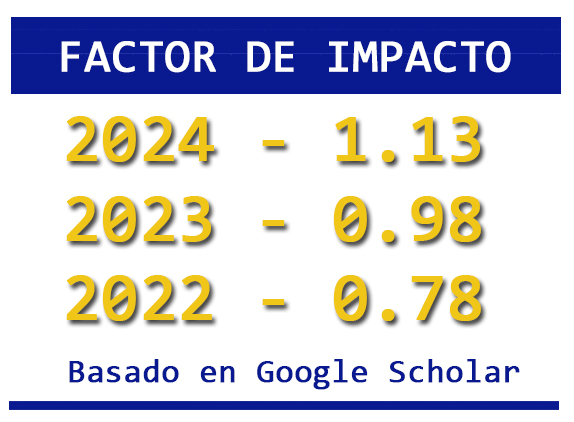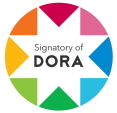Radiosensitivity in Breast Cancer Associated with Ethnicity
DOI:
https://doi.org/10.36790/epistemus.v16i33.224Keywords:
Radiotherapy, breast cancer, ethnicity, radiosensitivityAbstract
Scientific studies have shown that ethnicity has a great impact on cancer incidence, survival and response to drugs. Among the most common treatments for breast cancer is tumor removal, which goes hand in hand with radiation therapy for its efficacy in destroying residual cancer cells. However, it has been observed that the response to radiation is heterogeneous among patients and subtypes of breast cancer, with different adverse effects that may be associated with ethnicity. Cell lines of Caucasian and African-American origin are used in research, therefore the need for new cell lines of Latino and/or Asian origin is considered. In this review, we show the need to evaluate and compare the effects of radiosensitivity using models with different ethnicity in order to potentially apply personalized radiotherapy according to ethnicity is discussed.
Downloads
References
World Health Assembly, 58. (2005). Fifty-eighth World Health Assembly, Geneva, 16-25 May 2005.
Abigail Libers (2018, Octubre 10),¨Every Type of Breast Cancer Treatment Explained¨, www.prevention.com/health/health-conditions/a23693371/breast-cancer-treatments
Winn, H. Richard, MDFractionated, Neurological Surgery, Elsevier Vol 4 No. 8, 2017
Cifras preliminares, publicadas en agosto de 2021. INEGI. Estadísticas de mortalidad 2020. Consulta interactiva de datos. SNIEG. Información de Interés Nacional. https://www.inegi.org.mx/sistemas/olap/proyectos/bd/continuas/mortalidad/mortalidadgeneral.asp?s=est&c=11144&proy=mortgral_mg
Navarro, M.J., Caire, G., Ortega, M.I., Bola~nos, A.V., Saucedo M.S. ¨Influencia de los factores reproductivos, la lactancia materna y la obesidad sobre el riesgo de cancer de mama en mujeres mexicanas". Revista Nutricion Hospitalaria, Vol. 32, No. 1, pp. 291-298. 2015
INEGI (2020, Octubre 19) ¨ESTADÍSTICAS A PROPÓSITO DEL DÍA MUNDIAL DE LA LUCHA CONTRA EL CÁNCER DE MAMA¨ https://www.inegi.org.mx/app/saladeprensa/noticia.html?id=5996
ACS. 2020. Incidence – North American Association of Central Cancer Registries, 2019. Mortality – National Center for Health Statistics, Centers for Disease Control and Prevention. Disponible en: https://www.cancer.org/content/dam/cancer-org/research/cancer-facts-and-statistics/annual-cancer-facts-and-figures/2020/incidence-and-mortality-rates-race-and-ethnicity-2012-2017.pdf
National Cancer Institute. ¨SEER Cancer Stat Facts: Female Breast Cancer¨, Disponible: https://seer.cancer.gov/statfacts/html/breast.html (National Cancer Institute. Bethesda, MD, 2021.
Zavala, V.A., Bracci, P.M., Carethers, J.M. et al. Cancer health disparities in racial/ethnic minorities in the United States. Br J Cancer , Vol 124, pp 315–332 (2021). https://doi.org/10.1038/s41416-020-01038-6 DOI: https://doi.org/10.1038/s41416-020-01038-6
Lee, JK., Liu, Z., Sa, J.K. et al. ¨Pharmacogenomic landscape of patient-derived tumor cells informs precision oncology therapy¨, Nat Genet Vol.50, pp 1399–1411, 2018, https://doi.org/10.1038/s41588-018-0209-6. DOI: https://doi.org/10.1038/s41588-018-0209-6
Nima Razael, Cancer Immunology: A Translational Medicine Context¨, Springer International Publishing, pp. 307, 2020. https://doi.org/10.1007/978-3-030-30845-2 DOI: https://doi.org/10.1007/978-3-030-30845-2
Rashmi R. Shah and Andrea Gaedigk, ¨Precision medicine: does ethnicity information complement genotype-based prescribing decisions?¨, Ther Adv Drug Saf Vol. 9 , No. 45,2018, DOI: 10.1177/2042098617743393 DOI: https://doi.org/10.1177/2042098617743393
Kamat JP, Devasagayam TP, Priyadarsini KI, Mohan H, ¨Reactive oxygen species mediated membrane damage induced by fullerene derivatives and its possible biological implications¨ Toxicology, Vol. 155 No.1-3, pp 55-61, 2000, DOI: 10.1016/s0300-483x(00)00277-8 DOI: https://doi.org/10.1016/S0300-483X(00)00277-8
Samantha J. Harder, Quinn Matthews, Martin Isabelle, Alexandre G. Brolo, Julian J. Lum, and Andrew Jirasek, ¨A Raman Spectroscopic Study of Cell Response to Clinical Doses of Ionizing Radiation¨, Applied Spectroscopy Vol 69, No.2, pp 193, 2015. https://doi.org/10.1366/14-07561 DOI: https://doi.org/10.1366/14-07561
Disponible en: https://unsplash.com/s/photos/cancer.

Downloads
Published
How to Cite
Issue
Section
License
Copyright (c) 2022 EPISTEMUS

This work is licensed under a Creative Commons Attribution-NonCommercial-ShareAlike 4.0 International License.
The magazine acquires the patrimonial rights of the articles only for diffusion without any purpose of profit, without diminishing the own rights of authorship.
The authors are the legitimate owners of the intellectual property rights of their respective articles, and in such quality, by sending their texts they express their desire to collaborate with the Epistemus Magazine, published biannually by the University of Sonora.
Therefore, freely, voluntarily and free of charge, once accepted the article for publication, they give their rights to the University of Sonora for the University of Sonora to edit, publish, distribute and make available through intranets, Internet or CD said work, without any limitation of form or time, as long as it is non-profit and with the express obligation to respect and mention the credit that corresponds to the authors in any use that is made of it.
It is understood that this authorization is not an assignment or transmission of any of your economic rights in favor of the said institution. The University of Sonora guarantees the right to reproduce the contribution by any means in which you are the author, subject to the credit being granted corresponding to the original publication of the contribution in Epistemus.
Unless otherwise indicated, all the contents of the electronic edition are distributed under a license for use and Creative Commons — Attribution-NonCommercial-ShareAlike 4.0 International — (CC BY-NC-SA 4.0) You can consult here the informative version and the legal text of the license. This circumstance must be expressly stated in this way when necessary.
The names and email addresses entered in this journal will be used exclusively for the purposes established in it and will not be provided to third parties or for their use for other purposes.























